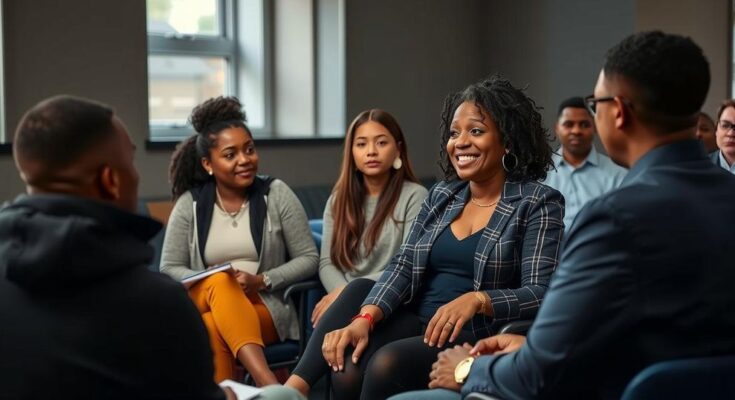Stacey Abrams led a post-election dialogue at Howard University, engaging students in discussions about the implications of recent elections and encouraging civic responsibility. Key topics included misinformation, the threat of theocracy, misogynoir in politics, and the crucial need for coalition-building and active participation in community initiatives.
On November 20, Stacey Abrams, the inaugural Ronald W. Walters Endowed Chair for Race and Black Politics at Howard University, convened a significant dialogue with students following the 2024 presidential election in Douglass Hall. The session, marked by a high level of engagement, provided a platform for students to articulate their thoughts and emotions concerning the electoral outcomes. Abrams emphasized the need to acknowledge both the challenges and responsibilities that civic engagement entails, stating, “I am someone who believes in this country’s capacity for more, even though we’ve had some trouble manifesting what it should be.”
The dialogue addressed pertinent issues such as the impact of misinformation and the potential for theocracy in American politics, with Abrams cautioning against the merging of religion and state. She stated, “It’s the intent to shift America from its constitutional responsibility of not having established religion… [to make] evangelical Christianity the metric for which everything is judged.” Furthermore, she highlighted the dangers inherent in legislative efforts aimed at undermining established rights, particularly with initiatives targeting diversity, equity, and inclusion (DEI).
Abrams elaborated on the notion of misogynoir and its detrimental effects on Black women in politics, particularly reflecting on the disappointment experienced by many following the recent elections. She expressed solidarity with Black women, stating, “Black women are usually the most effective fighters because we are often the most targeted victims, and I refuse to submit to my own victimization… We have that obligation to show up, because the consequence of us tapping out is not they’re going to leave us alone.”
The conversation emphasized the importance of coalition-building and political engagement. Students were encouraged to leverage their unique perspectives and experiences to foster a broader understanding of societal issues. Abrams advised the audience to engage actively in community efforts, articulating, “Your obligation after you leave this room is to pick one thing and spend the next year talking about it… find an organization – big, small, be it virtual or in person – you need to commit an hour doing something for that organization.”
In closing, Abrams urged the students to continue advocating for themselves and for justice while strategically navigating the political landscape. The session served not only as a reflection on recent electoral events but also as a call to action for future civic participation and advocacy.
Stacey Abrams, as a leading voice in Black politics and activism, serves as an influential figure in discussions surrounding race, equality, and political engagement. Her new position at Howard University as the Ronald W. Walters Endowed Chair represents a commitment to addressing these issues within an academic context, particularly in light of recent elections that have highlighted ongoing disparities and challenges faced by Black communities. The event aimed to create a constructive space for students to explore these dynamics and articulate their future paths in activism and politics.
The post-election dialogue led by Stacey Abrams highlighted critical issues surrounding misinformation, political rights, and the experience of Black women in politics. With her expertise, Abrams not only informed students about the evolving political landscape but also inspired them to engage actively in civic life. The event underscored the significance of coalition-building, shared responsibility, and the imperative to maintain community involvement as essential components for fostering equitable change in America.
Original Source: thedig.howard.edu




